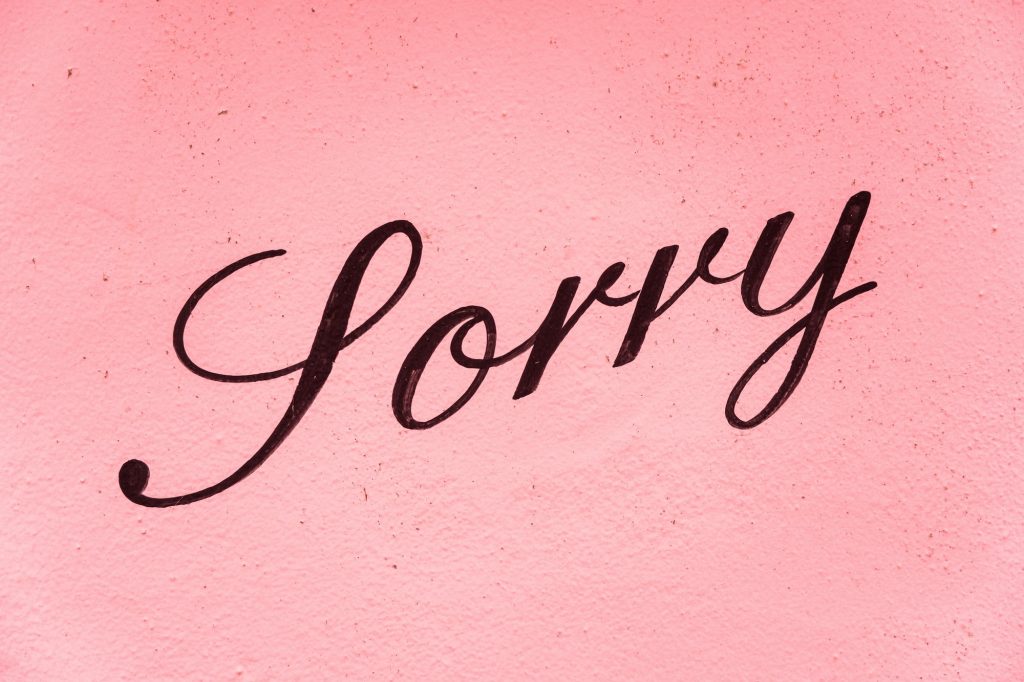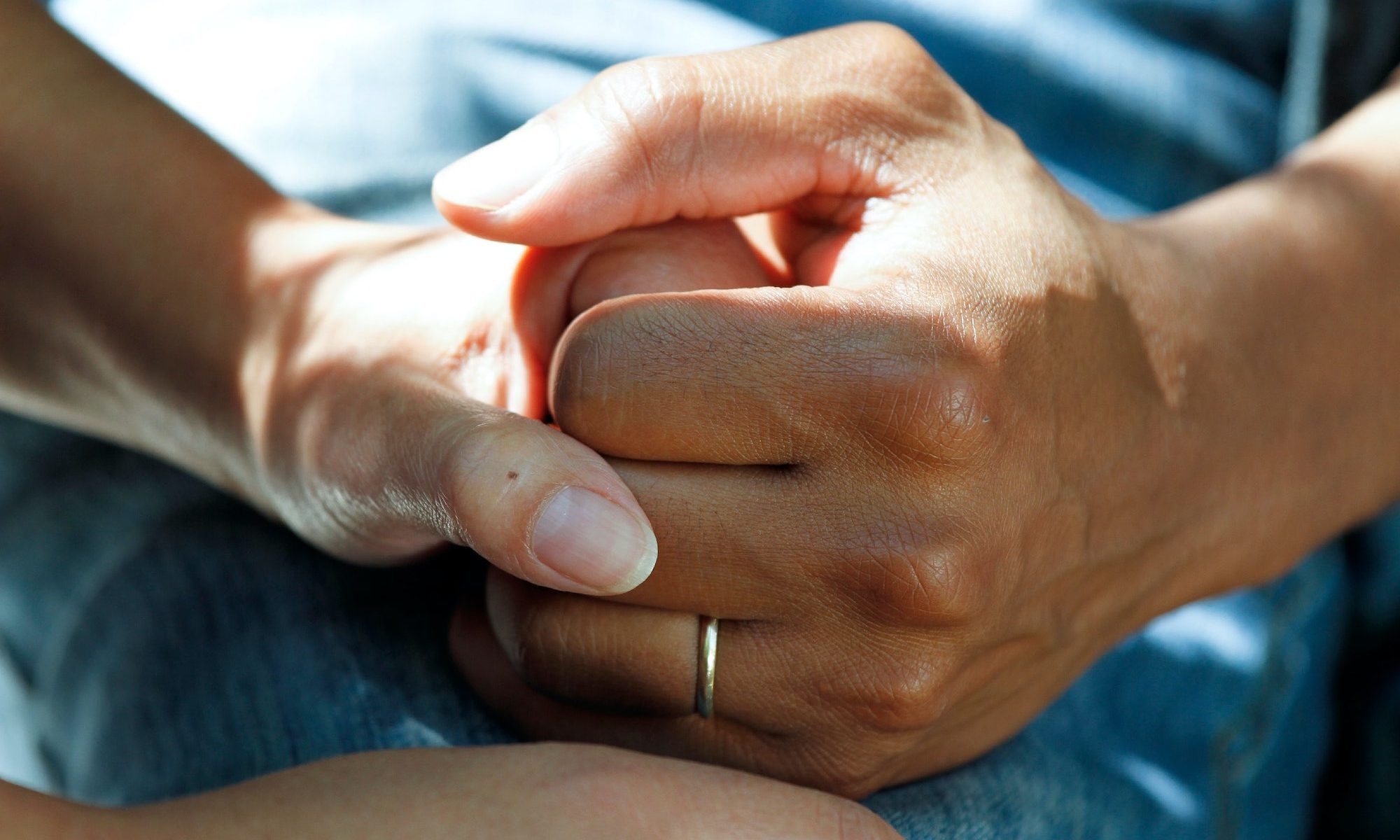I’ve been dealing for years with this issue of people not knowing how to talk to me once they find out I’m a bereaved mom. Given it’s been over fifteen years now, it’s getting a bit monotonous. And I know I’m not alone in feeling this way. There are plenty of other bereaved parents who struggle with the same reactions I get once people find out I’ve lost a child. In fact, I’m certain many bereaved people routinely experience the discomfort of those with whom they have shared their loss, no matter who has died. People in general, just don’t know how to talk to the bereaved.
While it’s rare for me to talk about my daughter with just anyone, it isn’t because I don’t want to. It’s because I learned early in my bereavement that I had to take extreme care in choosing who to share my loss with simply because of the overwhelmingly reactions I got when people found out I’d lost a child. (Usually this was in response to them asking me how many children I had). All of them wanted to know how she had died, which only made their discomfort even worse because it was a suicide.
Most people went silent after the obligatory “I’m sorry” and made a quick exit, which always left me feeling confused and now, so glaringly different from them. All of them represented somebody I once was. None of them wanted to be me. (As a side note, I always ended up having a wonderful exchange with the few who did end up talking with me.)

WHEN SORRY ISN’T ENOUGH
While I get that the standard reaction when we hear about somebody’s loss is to offer condolences and say sorry to the bereaved, saying sorry can actually do more harm than good. In the case of child death or deaths that aren’t natural; like suicide, sympathy and words such as “I can’t imagine” can feel stigmatizing and isolating. Most people who hear about the death of a child have no clue what to say to the bereaved parent simply because they can’t imagine being one. In fact, all deaths people can’t imagine have made our culture queasy and silent on the subject of death, loss and grief. It’s time for this to change.
EVERY DAY
Just because we can’t imagine certain types of loss doesn’t mean we should ignore that they happen to others. The reality is that millions of people lose loved ones every day and anyone who hasn’t will, one day. Accepting this as a fact can help us change how we engage with each other, including how those of us who have experienced unimaginable loss can comfortably speak with those who have not. It will help all of us get comfortable with the reality of bereavement that lasts the rest of the bereaved person’s lifetime. Once bereaved, always bereaved.

WE’VE BEEN CONDITIONED
Because we have been so conditioned to avoid talking about emotional pain, no one bereaved can ever hope of being true to themselves if they feel they can never again mention their lost child or other loved one because it might upset someone else. After years of feeling obliged to comfort anyone I talked to about my loss (I would tell them it (my loss) was okay when I didn’t really mean it), I finally decided I needed to change this. I was denying myself the truth of who I really was and what I had experienced. Lying was hindering my healing.
While I understand that extending sympathy to the bereaved is common because people don’t know what else to say, there are other and even better ways to engage with the bereaved.

It is important to remember that bringing up their loss with anyone bereaved will not make them feel worse than they already do. In fact, all the bereaved people I’ve ever met want to talk about their deceased loved one, especially their child. Speaking as a bereaved parent, I’d wager we all feel grateful when we can share any piece of our former life with others that includes our lost child. One of the most frightening things about losing a child or any loved one is that they will be forgotten.
TEN TIPS: HOW TO TALK TO THE BEREAVED
- When you hear about a loss, be genuine in your concern for the person sharing their loss. If the bereaved is someone you know, instead of telling them to call if they need anything (the bereaved often can’t reach out), ask them what they need help with and offer to do something specific for them that is within your means. Follow up if they don’t immediately accept your offer. (I once had a friend take me for high tea a year after my daughter died. I was so grateful to her for her kindness and not being afraid to be with me.)
- Don’t be afraid that you’ll say something wrong to the bereaved. If it’s someone you don’t know well, ask them a bit about their deceased loved one, such as their name. What they did and what they were like. Most people light up sharing tidbits of info about someone they’ve lost – especially their child, no matter how much time has passed. Most bereaved are grateful you cared enough to ask. (I met many grieving people who hadn’t mentioned their loved one’s name for years until I asked them what it was.)
- Don’t ask the bereaved (especially parents) how their child or loved one died if the conversation hasn’t naturally gone there. This can get very uncomfortable. Let the bereaved person decide how much they want to share with you.
- If it’s an unimaginable loss someone has shared with you, instead of responding with “I can’t imagine”, tell the bereaved you don’t know anything about their grief or what they are going through. This presents a great opening for a more meaningful conversation that can be inspirational and educational for those curious enough to learn more about other people’s experiences.
- Always imagine yourself in the bereaved person’s shoes. This creates a more compassionate and empathetic offering of condolences. Responding with something like: “While I haven’t experienced what you have, I can imagine …” is a more interesting opening than “I can’t imagine”. It feels more genuine to the bereaved and the grief less lonely. In truth, everyone really can imagine losing a child or loved one to a difficult and/or sudden death, which is why people don’t want to talk about it in the first place.
- Don’t assume people get over their grief and you will connect with them when they have. Many grievers don’t. This is how great friendships and other relationships are lost.
- Don’t ask the bereaved for or expect anything from them. Ever.
- Don’t take it personally when a bereaved friend or family member no longer behaves the same way with you or wants to attend your get togethers. Instead, reassure them you are there for them when they do feel ready. Offer to take them for a quiet outing, just the two of you, instead.
- Before sharing news about the milestones and successes of your own loved ones, ask your bereaved friend or family member if they feel up to hearing some joyous news. It’s critical to remember that after losing a child or when we are suffering deep pain from another loss, it’s hard for the bereaved to get excited about the wonderful things happening for others. We don’t want to think about it.
- Remember that it can take years for a bereaved individual to even begin to recover from their loss. This is especially true for those of us who have lost a child. We don’t return to normal. Be willing to adjust to your bereaved friend or family member by being invested in who they are becoming. Talk with them. Be curious about their experiences by sharing with them your own.
More info www.vonnesolis.com
Feature Photo by National Cancer Institute on Unsplash

